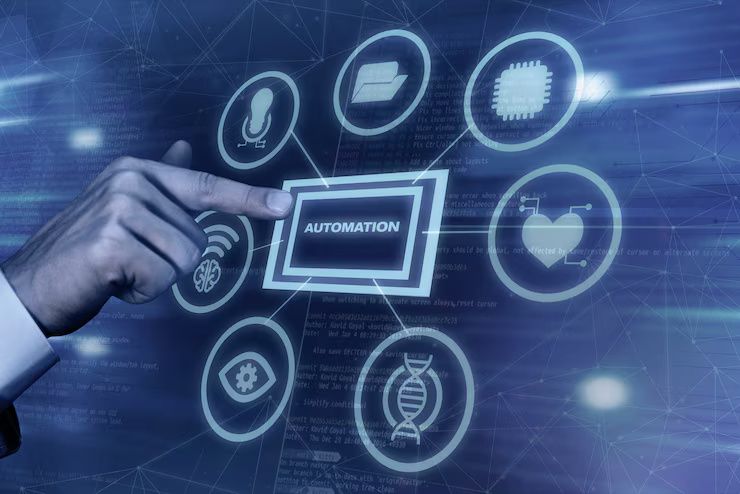What is AI Marketing? Tools, Trends, Regulations & FAQs
AI refers to the use of artificial intelligence and machine learning to automate, adapt and adapt marketing work - such as audience partitions, material formation, advertising targeting and execution of analysis. It appeared effectively to process messages to process messages and increase the conversion frequencies.
Marketing teams began to handle large amounts of digital data. Traditional equipment cannot keep up with real -time insights, personal materials and scalable decisions. AI fills this difference by learning from computer patterns and automatic manual inputs first.

AI marketing is important because it addresses several pressing challenges in the digital space:
- Volume of data: Marketers deal with massive datasets from social media, web sites, mobile apps, and emails. AI procedures and translates this information quick.
- Personalized reviews: Consumers now count on commercials and content material tailored to their behavior and alternatives.
- Resource constraints: Many businesses cannot have the funds for huge advertising and marketing teams. AI equipment automate complex duties, saving time and cost.
- Market opposition: Brands use AI to stay beforehand by means of optimizing campaigns quicker than manual groups can.
AI marketing affects a wide range of stakeholders:
-
Businesses and marketers: Who want more accurate data and faster insights.
-
Consumers: Who receive better-targeted and more relevant content.
-
Advertisers and media agencies: Who need scalable campaign management and bidding strategies.
Problems it helps solve include:
-
Poor campaign performance due to generic targeting.
-
Delayed responses to market changes.
-
Overload of manual data analysis.
-
Repetitive ad creatives and audience fatigue.
Recent Updates and Trends in AI Marketing (2024–2025)
Recent developments show AI marketing is not just growing—it's evolving in how it’s implemented and regulated:
- AI-JANIT commercials: Advertising platforms now support automatic text construction, image and even video trait using machine learning.
- Real -time campaign adjustment: Platforms automatically adjust advertising expenses, targeting and creative variations without waiting for manual entrance.
- AI in search advertising: Smart Bid -SALGORITME Reference, unit, use user history and intentions to determine the dialect values immediately.
- Cross-channel automation: Tools allow companies to run integrated campaigns in social, online, mobile and email channels using AI.
- Integration with customer data platforms (CDP): AI uses centralized customer data to equip the equipment's targeting and division accuracy.
These trends suggest a change to more autonomous and adaptive marketing systems where human input is strategic, not operations.
Regulatory Landscape: How Laws and Policies Shape AI Marketing
AI marketing does not operate in a vacuum. It is heavily influenced by privacy laws and digital advertising regulations. Here's how:
- Data Safety Act: Many countries implement rules that require users consent for data collection. This includes rights to approach, elections and data access.
- Material restrictions: AD platforms often reject certain people such as misleading claims, adult materials, financial fraud or medical misinformation - especially when AI is involved.
- Children and weak groups: strict rules limit how AI marketing can target minors or sensitive demographics.
- Algorithm Responsibility: As AI takes more control, regulators require openness about how decisions are made (for example, why an ad was shown to a specific user).
- Platform-specific guidelines: Large platforms use advertising policies to prevent abuse of AI-generated material and ensure responsible marketing practices.
The abolition is to ensure that AI equipment and strategies follow all current national and platform-specific rules.
Tools and Resources for AI Marketing
Here is a breakdown of helpful AI-powered tools and platforms across various marketing functions:
| Function | Popular AI Tools |
|---|---|
| Ad automation | Google Ads Smart Bidding, Meta Advantage+ |
| Keyword research | Keyword Planner, AI keyword tools |
| Creative generation | AI ad creators, automated video editors |
| Email campaign optimization | AI subject line testers, autoresponders |
| Audience segmentation | Customer data platforms, behavior analyzers |
| Analytics and dashboards | AI-driven marketing dashboards |
| Chatbots and messaging | AI assistants for customer support |
| SEO optimization | Content analyzers, SEO audit tools |
Most tools come with easy-to-use dashboards and require minimal technical skills, making them accessible to teams of all sizes.
What is the role of AI in digital marketing?
AI supports marketing by analyzing data, automating repeated tasks, predicting trends and providing personal experience to users in real time.
Is AI marketing just for large companies?
No. Designed for small and medium -sized businesses, many AI devices offer affordable prices, free testing and scalable features.
Is Ai-Janit advertising safe to use?
Yes, until they follow the advertising rules and make misleading claims or target the banned audience.
What is the risk of using AI in marketing?
Risks include potential privacy violations, algorithm bias, over -conceit on automation and lack of transparency in ad decisions.
How can I stay in line with AI advertising?
Follow platform policy, keep up to date with data security laws, use clear consent forms and review the AI-borne material for accuracy and morality.
Final thoughts
AI marketing changes how brands are connected to the public - through speed, intelligence and privatization. Although it reduces manual workload and maximizes the effect, it also asks for responsibility. Understanding equipment, being in line with laws and constant surveillance results ensures that AI works for the aberance, not instead of them.
